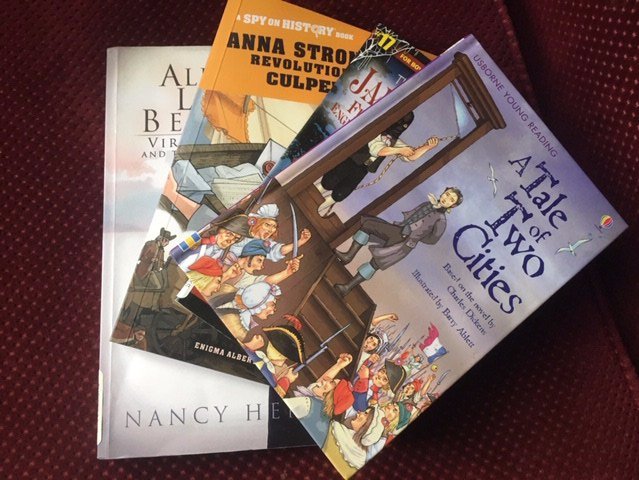“That’s a bad book.” The voice of a child, about 12 years old startled me as I heard them telling their sister to not touch a book on my table. I looked to where they were pointing to see “A Tale of Two Cities” there.
“Well, it is a matter of opinion.” I smiled and kindly replied.
Her stare could have melted through concrete. “My parents said it is a bad book.”

I was struck by the interchange for several reasons.
- I had never heard that particular book have any description that it was “bad”. My mind went nuts thinking that maybe it was because it spoke of executions, compared the good vs. evil among the characters and that the playboy in the story, had detailed exploits with drinking.
- She believed her parents were absolutely right. No matter what. They were right. Others were wrong, and her sister needed to be warned from it.
- She didn’t even think to judge for herself at all. She simply accepted what had been told to her.
- It is highly likely her parents told her that it was not a book they wanted her to read at her age, and forbade it at the moment. They likely did not explain beyond, “It’s bad.”
All of these things are not wrong, but in combination, can set up for a very dangerous cycle. It wasn’t really anything I could fix with this, nor was it my place, but it taught me a lesson. It wasn’t really about the interaction. It was more about the life lesson that I observed.
What happens if in high school, her parents assign her to read “A Tale of Two Cities.”? They will have brought up doubts in her mind as to what else they have not told her the truth about. If they don’t ever require her to read it, and she finds out as an adult the premise of the story, she may then begin to doubt everything else she was taught.
Often it seems easier to just tell our children what they should or shouldn’t watch. What they should read or shouldn’t read. We pre-screen everything, protect them from the possible evils that we know are out there, but forget that children grow into adults.
When is it time to stop protecting and teach wise judgment?
- We should be teaching our children right, wrong and ethics from a young age.
- We should be teaching kindness vs. judgement of others that do differently than we do.
- We should have a time, ages 8-12, where we start to allow them to make more choices that we guide, rather than dictate. Instead of saying, “That is a bad book.” we would say, “I am not sure that this book is appropriate for your age. Let’s take a look at the back. What do you think?” You can still make the final call, but asking them to take a look themselves, gets them to think for themselves.
- When they start to hit ages 12-18, you want them to be working more and more to make wise choices on their own. This means, you should be a guide more and more to the point that you work yourself out of a job. Give them chances to choose their own books, after guiding them for the previous four years, see how they put it into practice. When they choose something you don’t like, instead of forbidding, ask questions. “Why do you think I might not like this book/movie?” “How do you feel after reading this?”
When we work from this direction, we will find that instead of children that walk away from our beliefs, morals and ethics, you will have individuals that you have raised that may not always agree with you, but they will know how to do so with aplomb. They will have grace in it.
I smiled at the young girl at my table, sadly. I was saddened by the choices I saw, in that in their desire to protect, they had harmed. A comment from someone else that heard it, “That is homeschooling for you.” or something similar.
In reality, it doesn’t have to be. Those parents were truly doing what they believed was best for their children. But, I believe we can change this and be better. Teaching our children kind, wise and ethical judgement is something we can change for the future. We can change the future, but changing how we teach our children.


It might be good to have a chat with her parents…
She was just a stranger, it was more the overall thought as this was not an isolated incident with a general population.